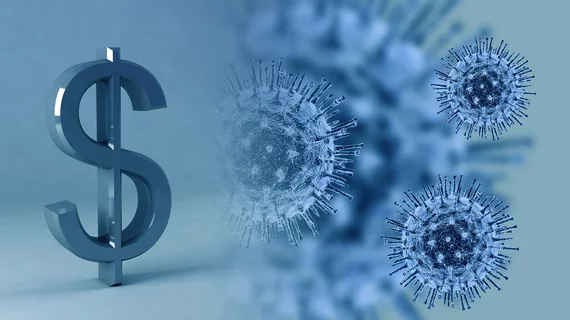American Heart Association investing $10 million to study the long-term consequences of COVID-19
The American Heart Association (AHA) has unveiled a $10 million research project designed to fund studies on the long-term impact of COVID-19 on the body's cardiovascular and cerebrovascular systems.
The grants are designed to encourage research that identifies and studies the underlying causes of cardiac, vascular, and cerebrovascular complications regularly seen in COVID-19 patients.
The studies will also examine why approximately 10% to 30% of COVID-19 patients are more likely to develop so-called “long COVID” and feel lingering effects of the virus well beyond the normal two to three weeks.
“While COVID-19 was initially thought to be a disease only of the respiratory system, it quickly became evident that its effects were not limited to any one system of the body,” Svati H. Shah, MD, MS, MHS, professor of medicine and associate dean for genomics in the division of cardiology at Duke University School of Medicine, said in a prepared statement. “Cardiovascular complications in aggregate have commonly been reported among COVID-19 patients and most often include blood clots, heart inflammation known as myocarditis, disruption of the heart rhythm, heart failure and heart attacks.”
Shah also noted that COVID-19 has “disproportionately” impacted certain racial and ethnic groups.
"Recent data from the U.S Centers for Disease Control and Prevention show that rates of hospitalization and death remain at least two-fold higher for people who are American Indian or Alaska Natives, Black individuals and Hispanic or Latino persons,” Shah said. “It is critical that we address these inequities, so as we review the research proposals, we’ll be giving special consideration to those projects that have a strong focus on inclusion of diverse populations.”
To date, the AHA has funded $2.5 million in research related to COVID-19 and worked to develop a national registry of health records for patients who were hospitalized with COVID-19.
The deadline to apply for group's new research grants is Feb. 1, 2022.
Related COVID-19 Content:
Myocarditis, arrhythmias and more: An ACC update on what cardiologists know about long COVID-19
Athletes with COVID-19 may require heart MRI screening for myocarditis, new data suggest
4 cardiac arrhythmias associated with COVID-19
What we know about COVID-19 and cardiogenic shock
Mild COVID-19 infections not associated with long-term risk of heart damage
The pandemic’s toll: 55 long-term side effects of COVID-19
4 key takeaways from an updated look at vaccine-related myocarditis in the U.S.
Most young people with vaccine-related myocarditis recover quickly
Intrathoracic complications in COVID patients: Incidence, associations and outcomes
Congenital heart disease increases risk of poor COVID-19 outcomes, including death
MRI scans show COVID's 'significant' impact on the brain
Heart complication seen for the first time in a young patient after COVID-19 vaccination
American Heart Association investing $10 million to study the long-term consequences of COVID-19
Cardiologist discusses COVID-19, myocarditis among professional athletes and more
Not so fast: Specialists warn against cardiac imaging for asymptomatic COVID-19 patients
Study shows COVID-19 can infect heart cells—and do serious damage in the process
